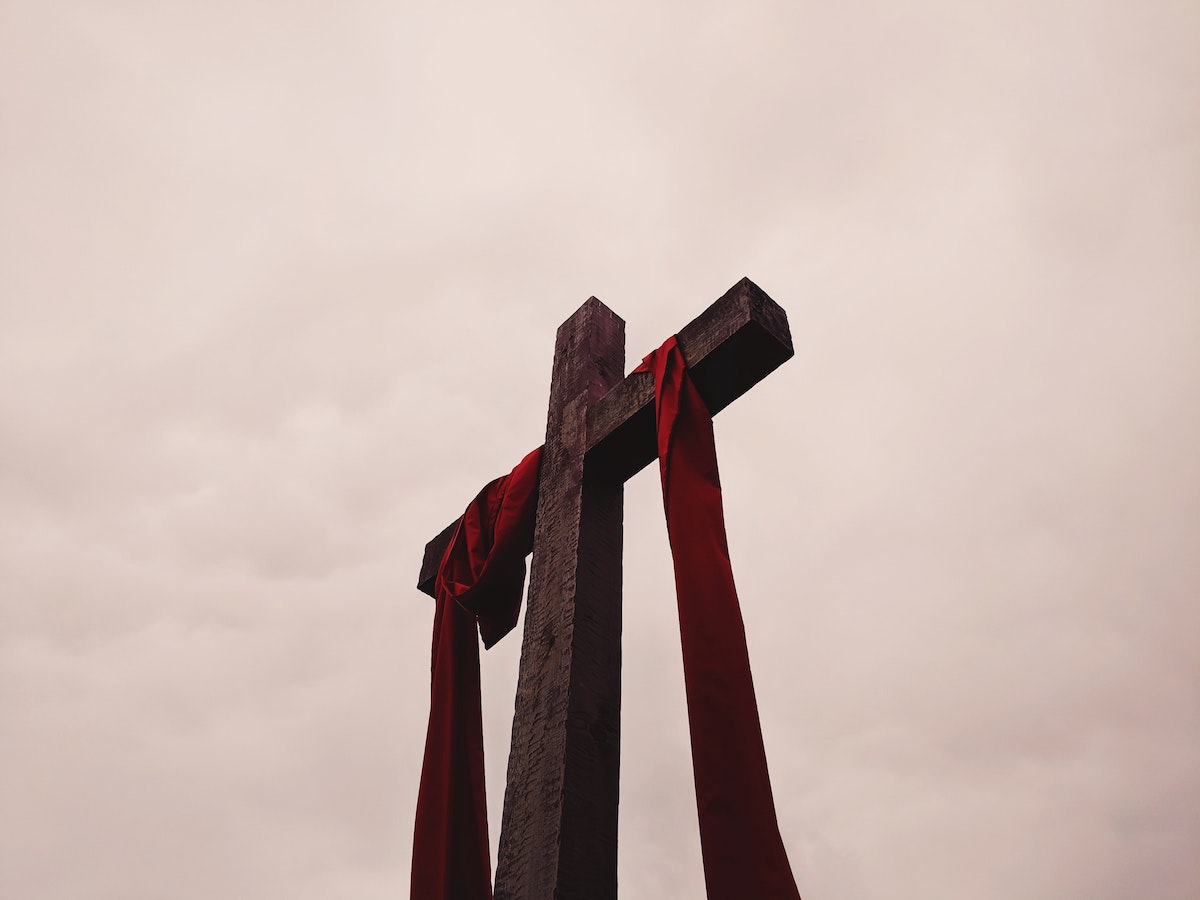In the 1990s, FUBU apparel was a “must-have” for socialites and young people in my context. The four-letter acronym solicited varying measures of accolade and envy, catapulting one onto a superior level of “cool.”
For Us By Us are four simple words loaded with themes of acceptance, salience, and in-group membership. Yet, for a Christian reflecting on the cross, these words can carry deep historical meaning, rich theological lessons, and attractive global implications.
Remembering the Past
History tells us that the Son of God, the Lord Jesus Christ, was crucified on Good Friday under Pontius Pilate (Mark 15:1–15; The Apostle’s Creed). We are told of the agony he suffered as he hung on a Roman cross. We are told of the words he uttered and the mockery he endured (Luke 22:63–23:49). We are even told of the care he displayed to those closest to him (John 19:25–27). While history helps us to recollect what transpired, there is a sense in which we were present at the crucifixion. Though removed by time and context, we participated in the punitive act of condemning Christ to his demise.
In an age where the language of sin is being replaced and minimized by extra-biblical vocabulary, the cross of Christ still towers over our denialism and waywardness, underscoring why Jesus had to die.
Therefore, to deeply appreciate what Christ saved us from, history invites us to locate ourselves in the storyline of his crucifixion. Here, we are to view ourselves not only as beneficiaries of what the cross accomplished but also as participants in the execution of the Messiah.
Fundamentally, we remember the past, reflecting on the fact that the cross is something done by us.
Remembering the Present
Paul tells us that through the Eucharist, believers recall and relive the death of the Messiah (1 Cor. 11:23–34). Like a gastronomic photograph connecting us to a bygone era, the Eucharist brings history into the present while joining us to all the people of God for all time. As we sup together, men and women, slave and free, immigrant and native, young and old, we visibly share and display unity in Christ and to each other (cf., 1 Cor. 12:12–14). Through it, we announce to society—and indeed to the cosmos—that Jesus is Lord, to the glory of God the Father.
In an age where the language of sin is being replaced and minimized by extra-biblical vocabulary, the cross of Christ still towers over our denialism and waywardness, underscoring why Jesus had to die. In an age where the substance of the gospel is being replaced by materialistic rhetoric, in some quarters, the cross of Jesus Christ still announces that we are justified by faith alone. In an age where the implications of the gospel are being curtailed to suit personal preferences, in some circles, the cross of Jesus Christ still points us to the inevitable consequences of the gospel, which include the transformation of social orders. The present is not immune to the supremacy of the crucified and resurrected Christ. And so, we remember the present, knowing that we who are being saved, are also called to be agents of redemption by God himself.
Ergo, we remember the present, reflecting on the fact that the cross is something done for us.
Remembering the Future
The act of remembering the future sounds oxymoronic. Yet, when we read 1 Corinthians 11:26, Paul confirms this reality. According to Paul, eating the bread and drinking the wine is a proclamation of the Lord’s death. One may even say this proclamation ties the past, present, and future in one location—the person of Christ.
It is the future certainty of being with Christ in the new heavens and new earth that should also amplify our love for gospel-informed diversity, secured and announced by the cross and resurrection.
Different dimensions exist in our remembrance of the future. We see lines of judgment and lines of celebration. Arguably, the latter is best captured by what we see in Revelation 7:9–17. It is the future certainty of being with Christ in the new heavens and new earth that should inform our daily living. Amid temptation and trial, our hearts should be sobered by this truth, propelling us to persevere in obedience and trust. It is the future certainty of being with Christ in the new heavens and new earth that should also amplify our love for gospel-informed diversity, secured and announced by the cross and resurrection.
Fundamentally, we remember the future, reflecting on the fact that the resurrection announces the return of the King to us.
Where FUBU is all about bringing salience to one people group, the cross of Jesus Christ exists for the salvation of humanity, regardless of our origins or station. Unlike FUBU that champions purpose above agency, the cross of Christ invites us to see ourselves as both perpetrators and beneficiaries of Christ’s self-giving sacrifice. Perhaps, then, ours is not a call to “remember FUBU” but to “remember BUFU,” trite as it may sound. For Christians, Christ’s death remains something done by us and for us, while the resurrection and ascension tell us that the King will return to us.










